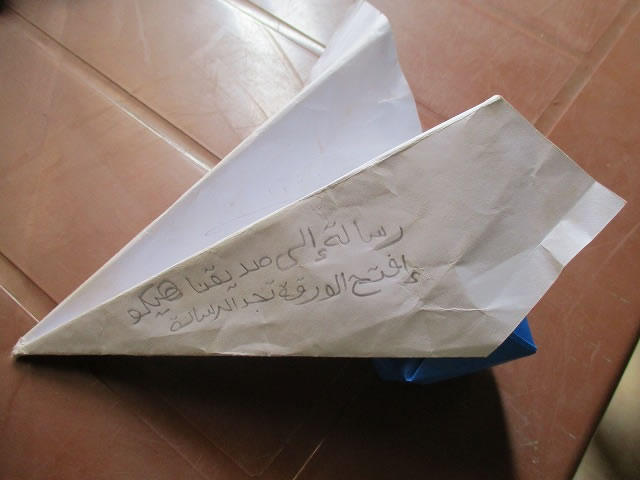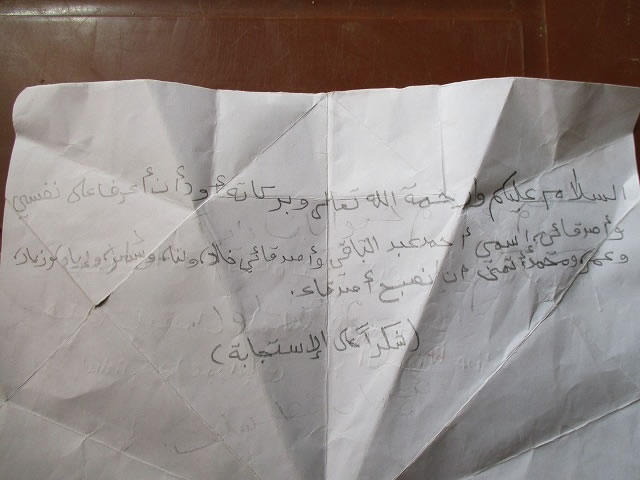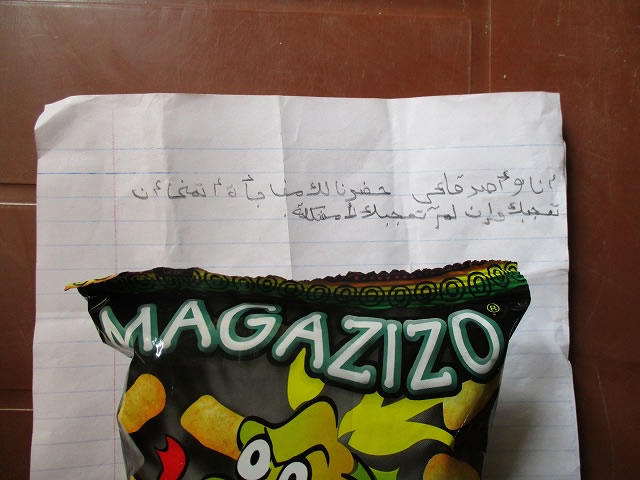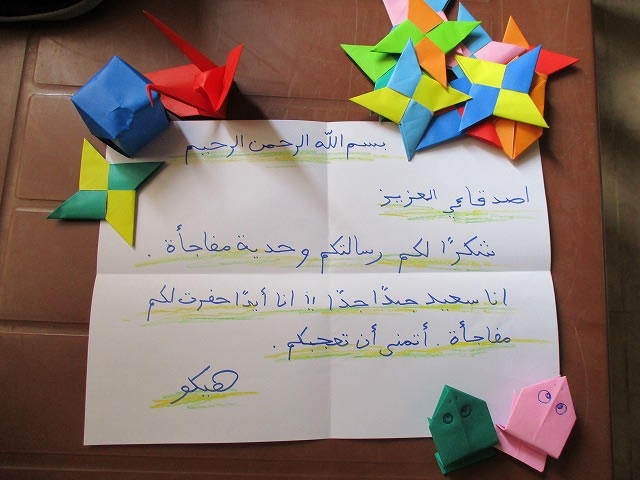[Original by Takahiko HASHIMOTO, Sudan Project (November 2, 2017); Translated by M. Kanai]
Hello to everyone who supports JVC. My name is Hashimoto. Recently we have power failures almost every day. We don’t know when it happens or how long it lasts. In the event of a power cut in the daytime while it is bright, we can still carry on our work. But power failures at night cause a lot of problems. Now I want to take a bath, but can I in complete darkness? The fan stops and the room temperature suddenly goes up. But I cannot open the windows lest mosquitoes are encouraged to enter. Hopefully I can come up with more productive ways to spend time during blackouts when I have ample time to think.
I‘ve got new little friends!
In my previous letter, I touched upon the children in the family of the owner of the property I rent and use as an office / living quarter. There are more than ten children, including the youngest ones who are twins aged 2, and the eldest who is aged roughly 10. They are running about full of beans in the courtyard after school on weekdays and from early morning on weekends. From the beginning of my assignment at the Khartoum office, for some reason the children immediately remembered my name and called me “HIKO” in a friendly manner. Sometimes their soccer ball bounces into the balcony on the second floor and they come here saying, “Please let us get our ball back”.
One day, on the weekend, when I was hanging laundry in the balcony, I heard my name getting called “HIKO” as usual. Since Hashimoto’s Arabic has become a little more comprehensible recently, we exchanged a few words. Then suddenly, I came up with an idea: “if I fly a paper plane from the second floor, it will fly well”. From my experience as a nursery teacher, I was convinced that the children would be delighted with my idea. I immediately made a high-performance paper plane, an object on which I studied a lot while I was working at a nursery school, and flew it toward the children. They jumped for joy as I had expected. Later I was doing my work, thinking that the paper plane might have lessened our distance, when I heard the front door-chime ringing. As I opened the door, I found at my feet the paper plane I flew a little while ago. As I picked it up, I noticed some Arabic writing on the plane. “Dear our friend HIKO. Please open this paper and read the letter inside.”
When I opened it, I found another letter inside. “As-salamu alaykum! I will tell you our names. Ahmed, Samir, Iyaad, Jiyaad, Omar, and Lana! We hope we can become friends. (We are waiting for your reply.)” It reminded me of a letter-exchange game I often played with children when I was working at a nursery school. I was very pleased to find that children are the same everywhere irrespective of nationality. I felt happy that the children did their best and found a way to communicate with me. While I was wondering what I should give them in return, I heard the sound of the chime again (for your information, the chime of the doorbell is the sound of chirping birds, piyo piyo). This time, I found a letter and a packet of sweets.
“Dear HIKO. This is a present from us. We will be happy if you like it.” Although I wondered if I should accept a present from children, I received their goodwill with gratitude. Now it was my turn to return the favor to the children in a proper way, and there were more than 10 children at that. Once again, my past experiences at a nursery school helped me to solve the problem. I decided to fold origami paper and make a lot of origami works such as a shuriken (a small throwing blade), a crane, a jumping frog, and a paper balloon. And I wrote them back in Arabic: “Dear sweet friends. Thank you for your present and letter! HIKO is so happy to receive them. HIKO also wants to give you presents. I hope you will like them.”
I flew my letter folded in the shape of an airplane from the balcony towards the children playing below. Again, they were so delighted! They read the letter putting their heads together. They seemed to understand Hashimoto’s Arabic and they seemed very happy to get origami works. I was very pleased to see each child carefully holding in their hands one origami they had chosen as his/her own. This is apparently what encouraged Lana, a girl aged about 6, to visit my office to learn how to make origami. She is attentive, kind, and considerate enough to speak slowly and carefully, taking into consideration Hashimoto’s level of Arabic comprehension. Before, I used to spend most of my time alone, but from now the children’s energy and kindness will cheer me up. Though the bird at the door, previously quiet, now chirps so often that it’s now my headache…
Share This:



